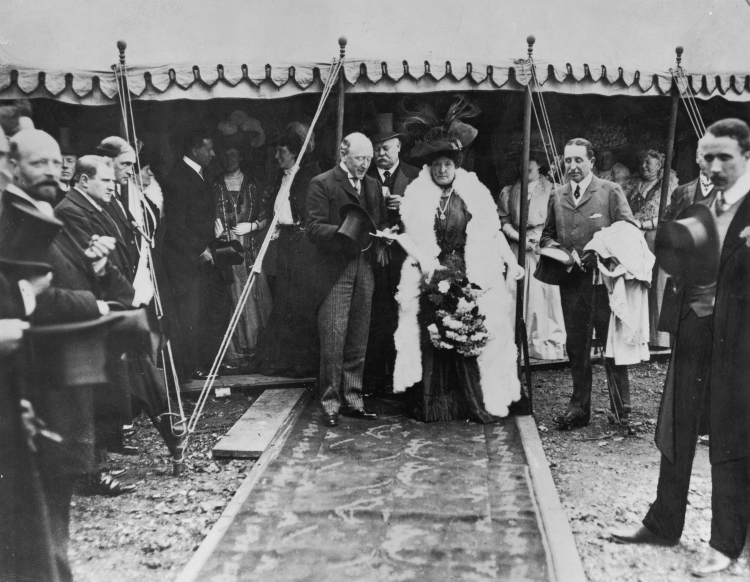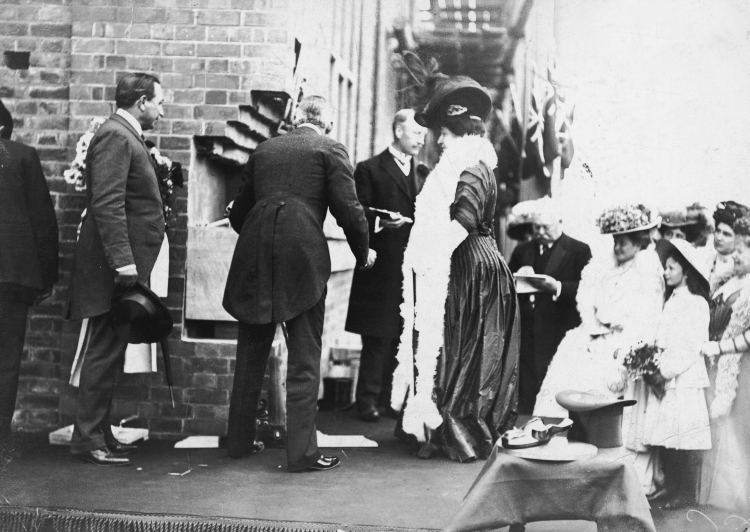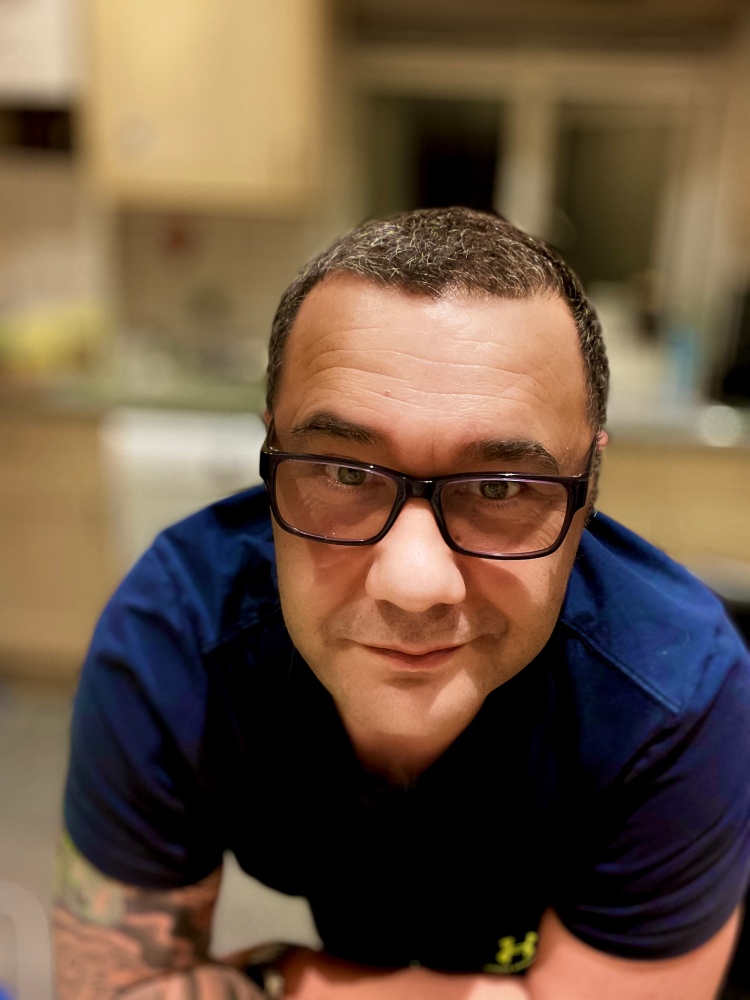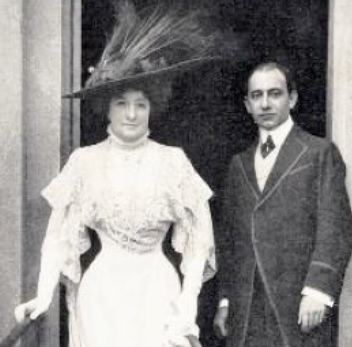Melba toast. Peach Melba. Melba sauce. Why are we listing foodstuffs (and sounding a bit like Alan Partridge in the process)? Because they are all named after the subject of this episode of The Sound of the Hound, Nellie Melba. The soprano was one of the most famous singers of the era – and it was Fred who captured her voice for us to enjoy over 100 years later.
Melba was born in Victoria, Australia, in 1861 and moved to Europe in the mid-1880s in search of a singing career. Nothing really happened in London so she went to Paris and found success there. Curious, romantic and demanding, Melba soon became a household name in opera houses around the world. Although she recorded some phonograph cylinders in New York in 1895, she hated them (a “scratching, screeching” noise, “never again,” she declared). It fell to Fred, his brother Will and their associate Landon Ronald to change her mind. “Melba was more than a prima donna. She was in the diva class, and well she knew it,” Fred wrote. But in early 1904, they captured her voice.
The session was not without its problems. The biggest one was that she demanded the recording took place in her Great Cumberland Place flat in London – complete with a full orchestra. She was “dominant” and “harsh” and, despite all the work, refused to let The Gramophone Company release the recordings. It took all of Fred’s guile to persuade her to finally release them. Once out, they sold like hot cakes, increasing her fame. Her recording sessions then became events in themselves. Journalists were invited, and Melba even had her own coloured label on her discs. Indeed, the initially reluctant singer lapped it all up, becoming something of a recording pioneer; she did a live radio broadcast and her last appearance at Covent Garden in 1926 was recorded by His Master’s Voice and broadcast. She became a Dame. So famous was she that another Dame, Kiri Te Kanawa, played her in Downton Abbey.


Michael Volpe joins us to discuss this memorable singer, her unique voice and her incredible legacy.

Michael Volpe first entered the opera world in 1989 and 7 years later established the now-prestigious Opera Holland Park in London. He is currently embarked on a new project to create a new kind of opera company in the South West of England as Executive Director of Iford Arts.
Volpe’s approach to opera for thirty years has been to popularise and demystify. He has a distinct penchant for late Italian rarities in the ‘stab and sob’ repertoire. He has made several successful and startling films showing the impact of opera on individuals, from teenagers in south London to Chelsea fans.
Volpe is the author of the acclaimed autobiography, ‘Noisy at the Wrong Times’, which tells the tale of his upbringing and attendance at Woolverstone Hall, an experimental boarding school. It was named on the Sunday Times ‘100 Biographies to Love’ list.
The music played in this episode:
- Ah Fors’ è lui.. Sempre libera from La Traviata by Guiseppe Verdi (1904)
- Ave Maria by Franz Schubert (1904)
- Swing Low Sweet Chariot (trad) (1926)
- Old Folks at Home by Stephen Foster (1905)
This episode was edited by Andy Hetherington.
The Sound Of The Hound is powered by EMI Archives Trust.
You can subscribe to the podcast on all good podcast platforms including Spotify Apple and Acast.
We hope you enjoy listening as much as we’ve enjoyed recording them!

